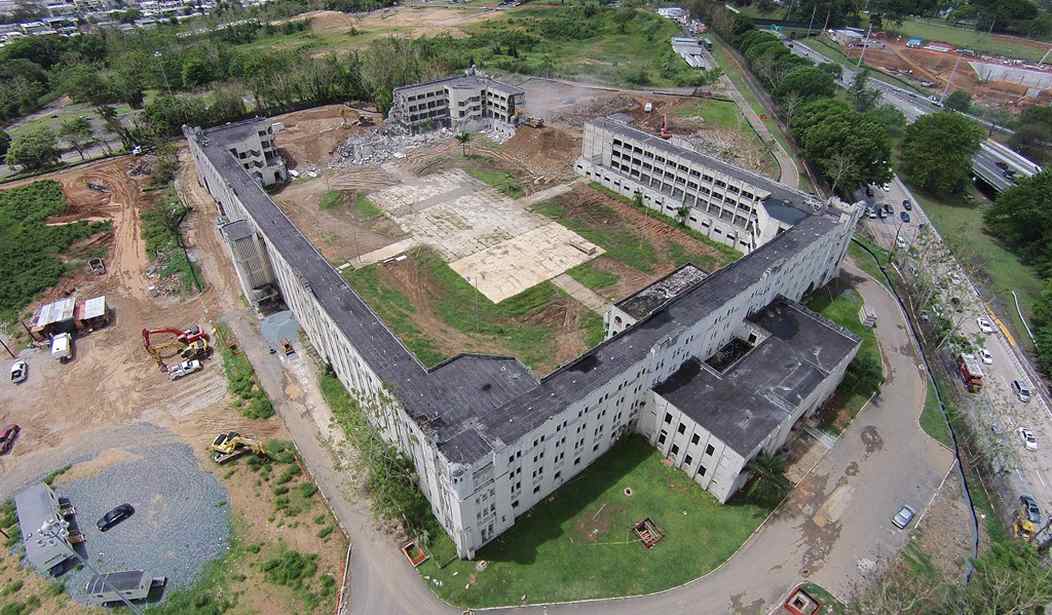Few U.S. institutions resemble today's prison system. Most Americans have little-to-no exposure to this quiet behemoth which has quadrupled its population since the 1980's, but for those who are exposed, the effects are dramatic. The system is wrecking families, hurting individuals, and costing our nation billions of dollars. We've seen some promising developments in the last year, but more Americans need to open our eyes to the dangerous path we've been headed down and push for continued reforms.
I've lived several years of my life in a small Midwest farming town that owes much of its continued existence to our American corrections system. It is surprisingly easy to forget in the busy day-to-day, but inmates make up roughly one third of the town's population and prison staff and guards compose another ten percent. It's doubtful that many of the retail businesses, restaurants, and hotels could exist without the business provided by prison guards and the visiting families of the imprisoned.
This situation is not unique – it's just one of many prison cities across the country. In total they add up to a system that hosts more than 2.3 million prisoners. If you combine this with the number of Americans on probation and parole, corrections systems in the U.S. are actively dealing with over 6.9 million people – that's one in 35 adults! And this number doesn't account for the many adults who have been through the system and have now come out on the other side.
While we seem to have gotten used to this mass incarceration, our rate is absurdly high when compared to other countries. The U.S. has 5% of the world's population, but houses 25% of the world's prisoners - our rate is the highest in the world.
So maybe there's something uniquely criminal about Americans? But our prison population wasn't nearly so high in the past. The incarceration rates jumped in the 80's with the increasing implementation of the war on drugs. Today's prison population is more than four times as large as it was in the 80's (during this time the U.S. Population grew by only about 38%), and you can chalk most of this growth up to drug charges. In the 70's, about 16% of federal inmates were in prison for drug crimes. Now that number is over 50%. The rate isn't as high in state prisons (20%), but drug offense is still the leading reason for imprisonment.
But, some might respond, drug offenders broke the law – prison is their just deserts! Let's consider that for a moment. First, the prospects for the ex-con are disastrous. These are life-destroying punishments. The average federal drug offender will be sentenced to over five years imprisonment. Compare this to a mere 2-year average for fraud. Only violent crimes and sex offense have longer sentences (and not by much). And once they're in prison, they are sure to return. In a recent study of 30 states, over 67% of released prisoners in 2005 were arrested for new crimes within three years of being released. By five years, the number was over 75%. While terrible, these numbers are not all that shocking when you consider what having a felony on your record can do to your employment prospects. These "just deserts" are not reforming criminals or providing a deterrent to future offense. They're establishing a continuous criminal class.
Consider also the impact of massive prisons on the rest of America. States spent $50 billion on corrections in 2011 - an average of 7% of taxpayer general fund dollars went to these programs. Each inmate costs the public tens of thousands of dollars. Aren't there better, less expensive answers?
Thankfully there are some signs that we are moving in a better direction. Attorney General Eric Holder instructed federal prosecutors to under-charge lower level drug offenders in order to avoid triggering the mandatory minimum sentences that automatically send the convicted to prison. Holder is attempting to reduce the number of minor drug offenders (non-violent with few-to-no prior convictions) going to prison and improve their future prospects.
Two
The White House has established new broader commutation criteria under which they are seeking requests from nonviolent federal prisoners with no gang connections who have already done ten years of time for nonviolent crimes, who were convicted under harsher penalties than those that exist today, and who have demonstrated good behavior.
Finally, and most encouragingly, after decades of skyrocketing prison populations, the U.S. Prison population has actually shrunk ever-so-slightly since 2009.
Unfortunately, there are also some significant threats to these positive reforms. First, consider communities like the one mentioned above: What happens to prison towns when their thousands of inmates and prison staff members are drastically reduced? Surely there will be a good number of towns and cities throughout the U.S. that will suffer if the prison population shrinks. Don't expect these voices to be silent - a $50 billion industry does not go gently into the night.
Second, and more disturbing, there is an effort to privatize prisons across the U.S. Groups like Corrections Corporation of America (CCA) have been building their own for-profit prisons and taking over existing state prisons. One particularly troubling trend is CCA's attempts to swing deals in which their takeover of a prison from a state is contingent on that state promising to keep the prison at over 90% of capacity. There are all manner of terrible incentives at work when you involve market interests in the doling out of just punishments. Establishing justice (which includes executing sentences) is one of the most fundamental roles of government - it should not abdicate this role to a private company.
What does the future hold for corrections in the U.S.? Things are looking hopeful for the first time in decades. The number of prisoners is beginning to creep downwards, people are seriously considering alternative approaches to our war on drugs, and all branches of the government seem to be oriented towards reducing our prison population. Maybe Washington actually will get something done on this front.
Or perhaps we will see an increase in the number of alternatives to imprisonment. Why not increase fines and mandate rehabilitation programs for drug users instead of sticking them in prison for five years? Or enact higher fines while reducing jail time for offenses like fraud? Maybe we can work towards real immigration reform that lowers the number of people in prison for immigration crimes? We can at least hope and cast our vote accordingly.
In the meantime, the corrections system is a significant chunk of our economy and needs to be on the radars of average Americans. There is a lot of money at play here, and there are plenty of people with financial interests in keeping large prisons stuffed full. Only consistent public pressure will keep government moving towards significant prison reforms.
Shrinking Prisons
The opinions expressed by columnists are their own and do not necessarily represent the views of Townhall.com.
Advertisement
Advertisement
Advertisement

Advertisement
























Join the conversation as a VIP Member